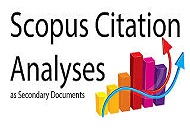Kemampuan Berpikir Kritis Matematis Siswa Dalam Model Pembelajaran Jucama pada Materi Trigonometri
DOI:
https://doi.org/10.33394/jk.v6i1.2301Keywords:
Critical Thinking, Jucama, Completeness, hhe Feasibility of Learning, Interest in Learning.Abstract
This study aims to determine the effect of Jucama learning model against students' mathematical critical thinking abilities, the influence of Jucama learning models on students' critical mathematical thinking abilities, completeness of student learning outcomes using Jucama models, the implementation of Jucama learning models, and students' learning interest in Jucama learning models. This type of research is quantitative, the nonequivalent posstest-only control group design research. The study population was students of class X. The research sample taken was class X A as an experimental class and class X B as a control class. The research results are processed using independent statistical test sample t-test and effect size, one sample t-test, proportion test, and statistics descriptive. Based on the results of statistical tests on research data, it can be concluded that the Jucama learning model influences the ability to think critically mathematically, the Jucama learning model has a high effect on the ability to think critically mathematically, student learning outcomes experience completeness with the application of the Jucama learning model, the Jucama Jucama Learning model can be implemented well in its application and high student learning interest in the Jucama learning model.
References
Buyung, Nirawati, R., & Kusumawati, I. (2016). Pengaruh Strategi Pembelajaran Inkuiri (SPI) Terhadap Kemampuan Pemahaman Konsep Siswa Kelas VIII SMP Negeri 18 Singkawang. JPMI (Jurnal Pendidikan Matematika Indonesia), 1(2), 87–90.
Hassoubah, Z. I. (2007). Mengasah pikiran kreatif dan kritis. Jakarta: Nuansa.
Karim, & Normaya. (2015). Kemampuan Berpikir Kritis Siswa dalam Pembelajaran dalam Pembelajaran Matematika dengan Menggunakan Model Jucama di Sekolah Menengah Pertama. EDU-MAT, 3(92–104).
Kartimi. (2012). Pengembangan Alat Ukur Berpikir Kritis Pada Konsep Termokimia untuk Siswa SMA. Scientiae Educatia: Jurnal Pendidikan Sains, 1(1), 1–14.
Noordyana, M. A. (2018). Meningkatkan Kemampuan Berpikir Kritis Matematis Siswa melalui Pendekatan Metacognitive Instruction. Mosharafa: Jurnal Pendidikan Matematika, 5(2), 120–127.
Rasyid, H. M. (2008). Penilaian Hasil Belajar. Bandung: CV. Wacana Prima.
Rohmatin, D. N. (2014). Penerapan Model Pembelajaran Pengajuan dan Pemecahan Masalah untuk Meningkatkan kemampuan Berpikir Kritis siswa. Gamatika, 5(1), 1–7.
Rosmaiyadi. (2017). Analisis Kemampuan Berpikir Kritis Matematis Siswa Dalam Learning Cycle 7e Berdasarkan Gaya Belajar. AKSIOMA: Jurnal Program Studi Pendidikan Matematika, 6(1), 12–19.
Sa’dun, A. (2013). Instrumen perangkat pembelajaran. Bandung: Remaja Rosdakarya.
Sartikawati. (2016). Pengaruh Model Pembelajaran Kooperatif Tipe Team Assisted Individualization (TAI) Untuk Meningkatkan Kemampuan Berpikir Kritis Matematis Siswa Pada Materi Lingkaran Kelas VIII. STKIP Singkawang.
Siswono, T. Y. E. (2008). Model pembelajaran matematika berbasis pengajuan dan pemecahan masalah untuk meningkatkan kemampuan berpikir kreatif. Surabaya: Unesa university press.
Sulistiyawati, S. (2013). Penerapan Model Pembelajaran Jucama Pada Materi Teorema Pythagoras. Jurnal Mahasiswa Teknologi Pendidikan, 2(1).
Sumiati, A. (2009). Metode Pembelajaran. Bandung: Wacana Prima.
Sutrisno. (2008). Pengembangan Pembelajaran IPA SD. Jakarta: Direktorat Jendral Pendidikan Tinggi Departemen Pendidikan Nasional.
Downloads
Published
How to Cite
Issue
Section
Citation Check
License
License and Publishing AgreementIn submitting the manuscript to the journal, the authors certify that:
- They are authorized by their co-authors to enter into these arrangements.
- The work described has not been formally published before, except in the form of an abstract or as part of a published lecture, review, thesis, or overlay journal.
- That it is not under consideration for publication elsewhere,
- That its publication has been approved by all the author(s) and by the responsible authorities – tacitly or explicitly – of the institutes where the work has been carried out.
- They secure the right to reproduce any material that has already been published or copyrighted elsewhere.
- They agree to the following license and publishing agreement.
Authors who publish with JK agree to the following terms:
- Authors retain copyright and grant the journal right of first publication with the work simultaneously licensed under a Creative Commons Attribution License (CC BY-SA 4.0) that allows others to share the work with an acknowledgment of the work's authorship and initial publication in this journal.Â
- Authors are able to enter into separate, additional contractual arrangements for the non-exclusive distribution of the journal's published version of the work (e.g., post it to an institutional repository or publish it in a book), with an acknowledgment of its initial publication in this journal.
- Authors are permitted and encouraged to post their work online (e.g., in institutional repositories or on their website) prior to and during the submission process, as it can lead to productive exchanges, as well as earlier and greater citation of published work.
- Open Data Commons Attribution License, http://www.opendatacommons.org/licenses/by/1.0/ (default)

This work is licensed under a Creative Commons Attribution-ShareAlike 4.0 International License.








